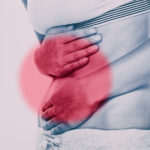By David Blyweiss, M.D., Advanced Natural Wellness
December 31, 2014
- Drop weight and fight obesity in 2015
- Why antibiotics are making you fat
- Feed your good “gut bacteria” for a skinnier you
Well, another year has passed, and tomorrow is the start of a new year. That means my practice will be swarming for the next three or four weeks.
You see, once the New Year rolls around, my patients start getting serious about improving their health. So, they stop by my office, where we sit down together to work out a game plan. There are all sorts of goals they’re hoping to meet, but weight-loss is usually at – or near – the top of the list.
There are many things that influence your ability to lose weight, and you know what most of them are. Getting plenty of physical activity. Avoiding fattening, processed foods and sugars. Eating your fruits and veggies.
At my office, we even bring in our registered dietician, who helps make it all doable for you. These changes take time and effort, but they pay off in the long run.
But there’s another factor I’ll bet you haven’t heard about. And it might just play a big role when it comes to your ability to drop weight and fight obesity during 2015.
I’m talking about gut bacteria, or what scientists are calling the “gut microbiome.”
It turns out your balance of gut bacteria can have a very large impact on your weight. In fact, people who put on the most weight lack certain species of gut bacteria. And sadly, obese people who don’t have enough of these healthy bacteria will likely continue to gain weight over the years.
Open your arteries, improve blood flow for a new health miracle...
Did you know your circulatory system has over 60,000 miles of arteries, veins and other blood vessels, if stretched end to end?
But as you age, your blood vessels undergo changes, which may cause them to stiffen, thicken and get clogged.
GOOD NEWS! Doctors have now identified a “Miracle Molecule” inside your arteries that helps OPEN your arteries and IMPROVE blood flow.
It’s what Dr. Valentin Fuster calls it, "One of the most important discoveries in the history of cardiovascular medicine."To you, that means...
- Healthy blood pressure
- Sharper mind and memory
- Skyrocketing energy and muscular strength
- Increased pleasure and passion in the bedroom
- Improved circulation to every cell and organ in your body
Go here to discover a new natural way to significantly boost the levels of this miracle molecule in YOUR body NOW!
Let me explain what happens… and what you can do to improve your ability to drop those excess pounds.
Today, there’s a general consensus that overuse of antibiotics are partially to blame for the obesity epidemic. That’s because there’s a very delicate balance to your gut microbiota. It’s like an entire society living inside your body.
In fact, it’s much more than that. When you’re born, you inherit two sets of DNA… one from each of your parents, and one from your mother’s microbiome. Within a short period of time, you have more microbiome DNA than human DNA. Even though there’s more microbiome DNA, everything remains in balance (when you’re healthy).
Some of the bacteria are good, some are bad, and all of them are fighting for space. When any of these bacteria are killed off, it’s a struggle to get them back and regain a natural balance.
Even if you haven’t been prescribed an antibiotic in recent years, they’re found in our food supply more often than you might guess.
It may sound unbelievable, but about 70% of all antibiotics in the U.S. are used on healthy farm animals. In 2011 that added up to 30 million pounds of antibiotics. These drugs are used to make farm animals grow fat more quickly. But when you eat commercial meat, it fattens you up, too.
Even milk cows are loaded up with antibiotics. This means your dairy products are even more fattening than you thought they were.
With all of these antibiotics being introduced into our bodies, it’s no wonder our gut bacteria are waging war! But that’s just the beginning of it.
Are You Suffering From...
- Love handles and a pot belly
- Romance that isn't what it used to
- Forgetfulness and inattention
- Low (or no) strength and endurance
- A sex drive that's shifted into neutral...or worse
If so...you may have Mature Male Burnout. Click here to discover more about this unique condition and what you can do about it.
When certain bacteria in your digestive tract are depleted, it can increase your hunger hormone, ghrelin, by about six times. This is the hormone that sends hunger signals to your brain. When levels remain high over extended periods of time, it can lead to enormous weight gain.
Additionally, antibiotics can cause mitochondria (your body’s energy factories) to fail. When this happens, it can lead to tissue damage, which affects the way mitochondria convert food to energy. This, in turn, can easily have an effect on your weight.
So, what can you do to restore a naturally healthy balance of gut bacteria that can help encourage weight-loss?
It’s unfortunate, but a good percentage of us don’t have a rich and diverse assortment of “good” gut bacteria.
Now, that doesn’t mean you can’t change the balance…
When people who are obese eat a healthier diet, it can increase the balance of “good” bacteria in their guts. And in just days to weeks, this change can lead to a significant decrease in fat mass. It also boosts metabolism.
All it takes is eating foods that feed your good gut bacteria… the kind that can help you get skinny.
Adding more fermentable fibers is a good first step. These aren’t the same type of fibers that you get from eating a bowl of cereal. Most cereal fibers – like wheat bran – are resistant to fermentation and are best to avoid.
On the other hand, vegetables and fruits (and their peel, if edible), legumes, nuts/seeds, and some healthy grains are all rich in fermentable fibers. These are the ones that feed your healthy gut bacteria.
This process makes short chain fatty acids (SCFAs), the most important one being butyrate. These SCFAs, in turn, help control blood sugar and appetite. They also help regulate inflammation and strengthen your immune system by balancing something called your TH1/TH2 ratio.
Critically important, too, butyrate feeds and heals the colonic lining. Some fermentable fibers go the extra mile and stimulate expansion of the good bacterial microbiome, as well. They’re called prebiotics (versus probiotics, which are the actual bacteria).
There are also many fermented foods you might enjoy. These foods introduce good bacteria to the digestive tract to crowd out the bad ones.
You might want to experiment with miso or natto. These are fermented soy products that are loaded with plenty of bacteria that are good for your gut. Kimchi (a spicy Korean dish made from fermented vegetables) and tempeh (a patty made from fermented soybeans) are also some tasty treats that can help build a rich diversity of gut bacteria. Please take the extra caution and buy them Non-GMO.
Other fermented foods you may be more familiar with include sauerkraut, kefir and yogurt. However, if you decide to go the yogurt route, I have a word of advice. Please stick with plain Greek yogurt that doesn’t have a bunch of sugar and other additives. Top it with fresh fruits and nuts to add flavor.
It can also help to take a probiotic supplement every day. They not only help keep your digestive system on track. They also help lower your cholesterol levels, improve blood pressure and increase insulin sensitivity.
Look for a probiotic that contains several different strains of beneficial bacteria. You want a good mix of Bifidobacterium species, Lactobaccillus acidophilus, L.bulgaris, L. bifidus, and Streptococcus faeceum.
And when it comes to probiotics, more is better. Find a supplement that provides at least 5 billion colony forming units (CFUs) and take it every day.
Best wishes for a happy and healthy New Year,
Sources:
Francois F, et al. “The effect of H. pylori eradication on meal-associated changes in plasma ghrelin and leptin.” BMC Gastroenterol. 2011 Apr 14;11:37.
Kalghatgi S, et al. “Bactericidal antibiotics induce mitochondrial dysfunction and oxidative damage in mammalian cells,” Science Translational Medicine, 5: 192ra85, 2013.
Dietrich MO, et al. “Mitochondrial Dynamics Controlled by Mitofusins Regulate Agrp Neuronal Activity and Diet-Induced Obesity,” Cell, Volume 155, Issue 1, 188-199, 26 September 2013.
Cotillard A, et al. Dietary intervention impact on gut microbial gene richness. Nature. 2013 Aug 29;500(7464):585-8.






